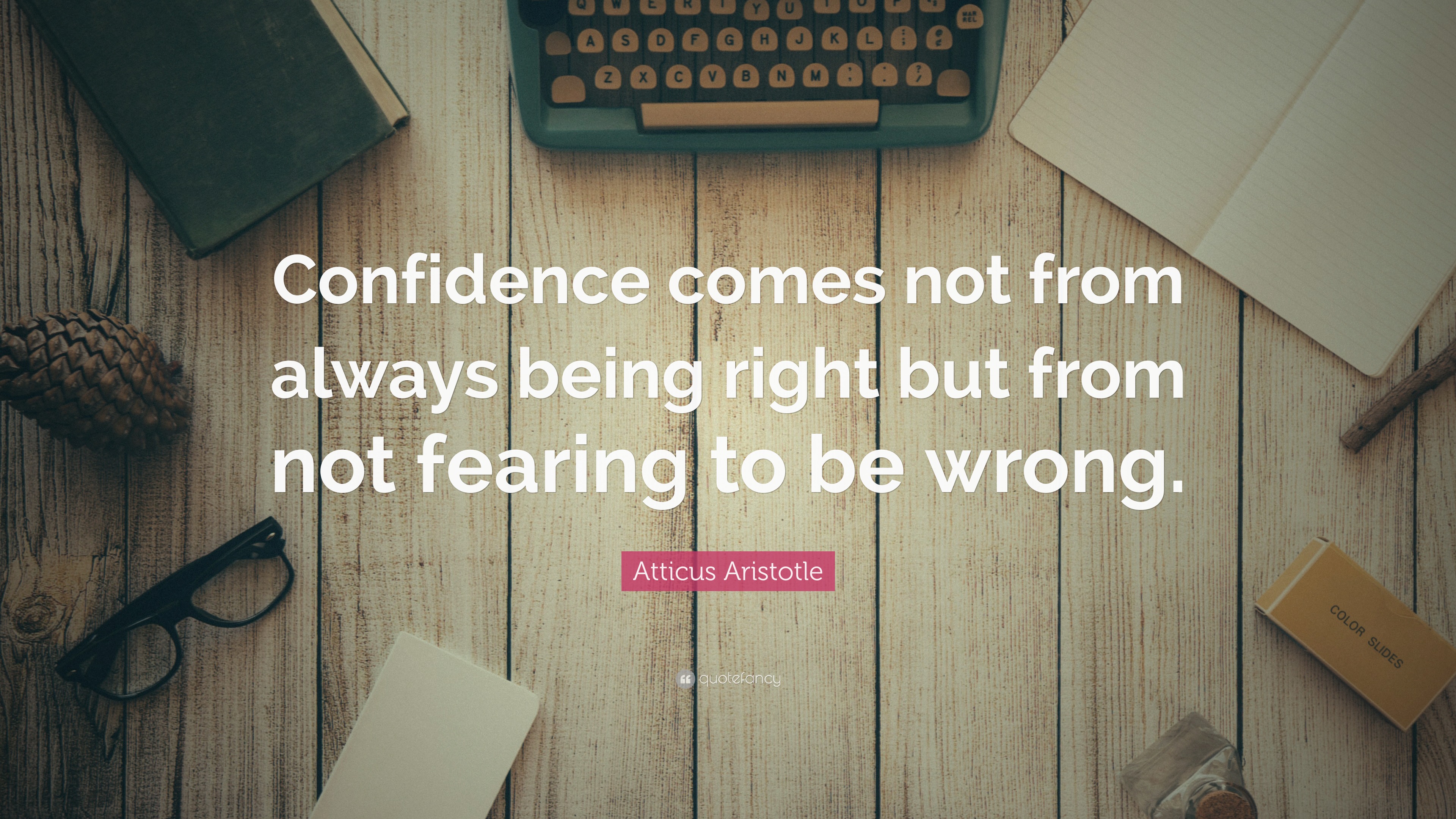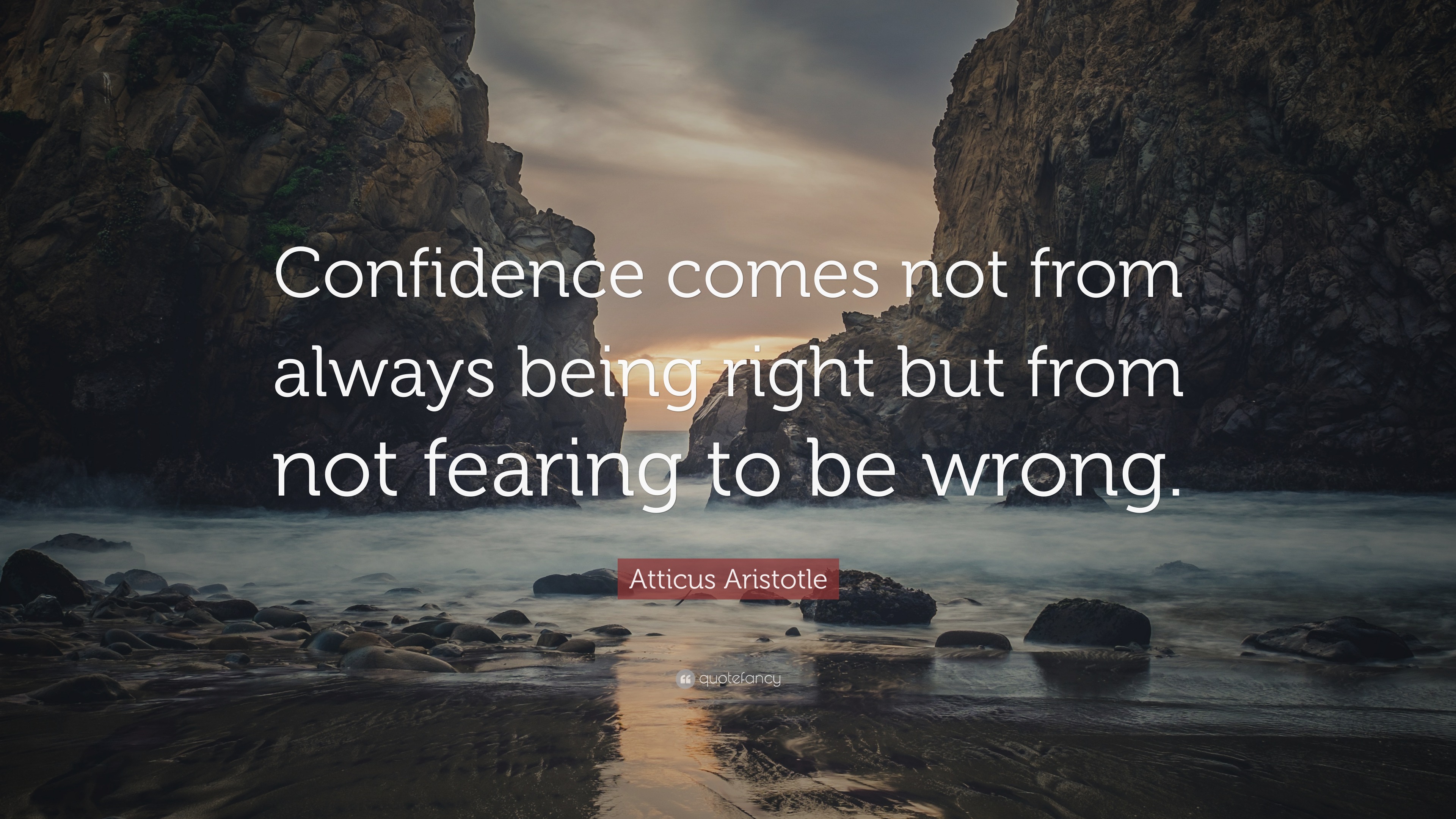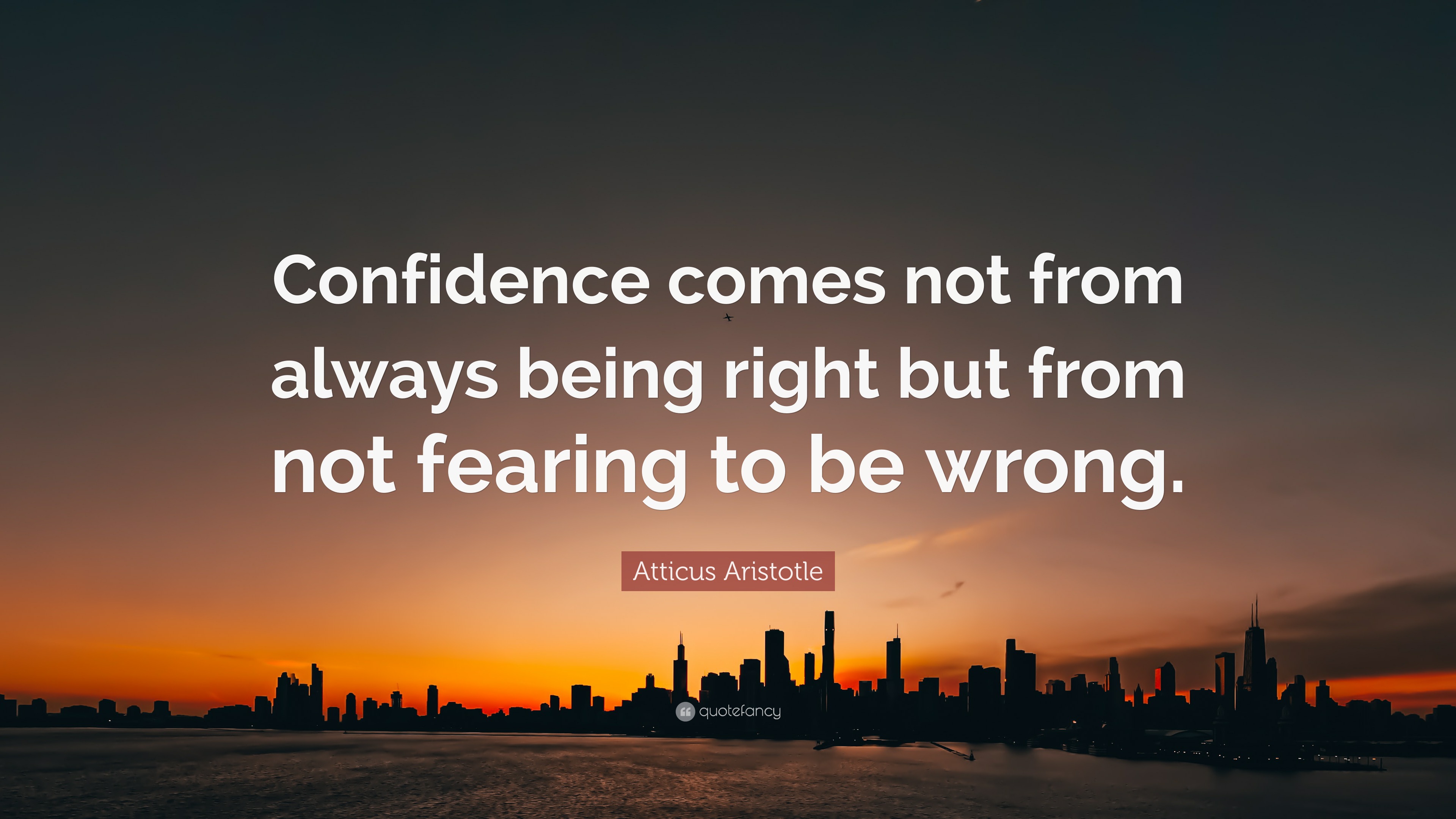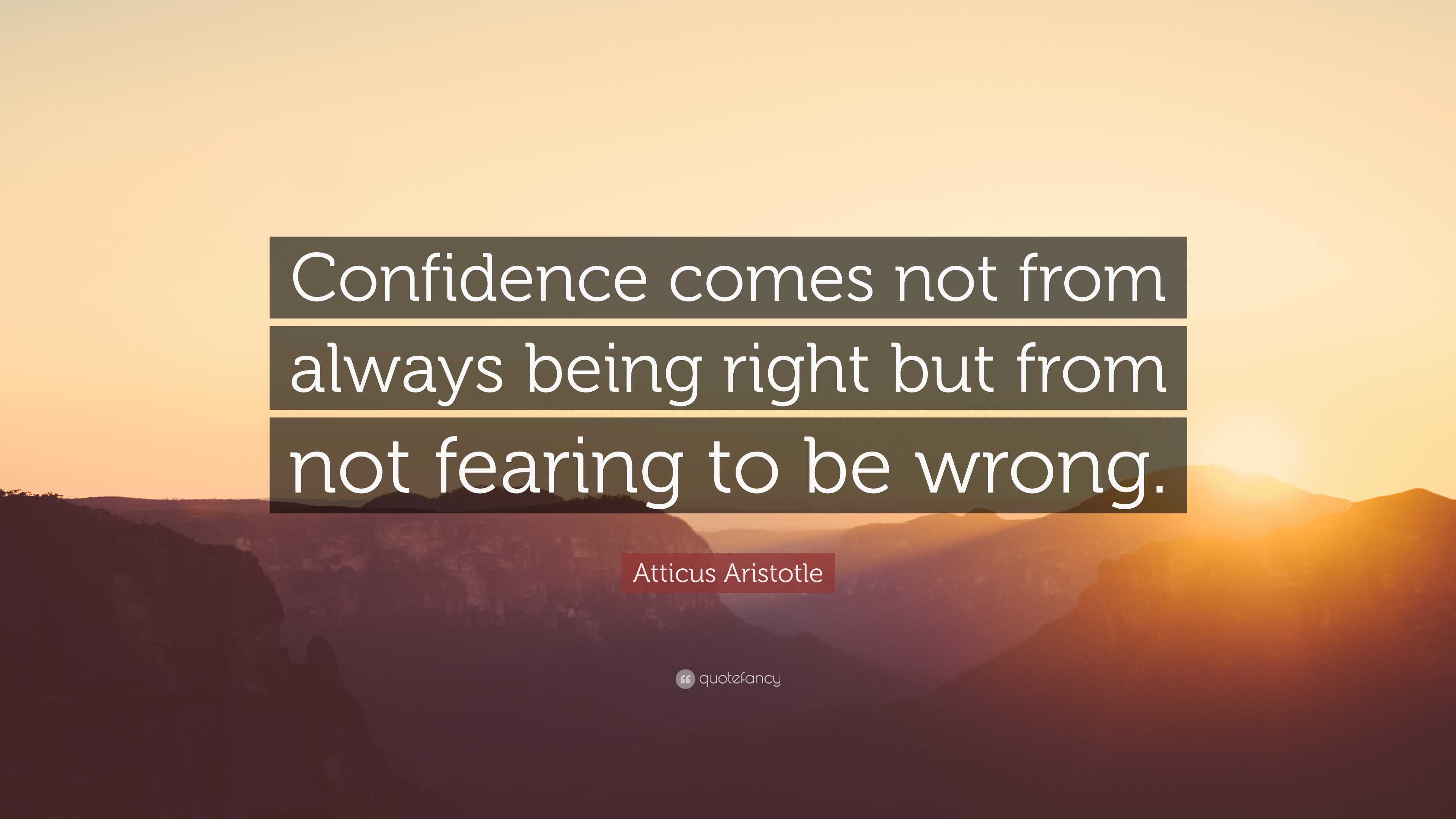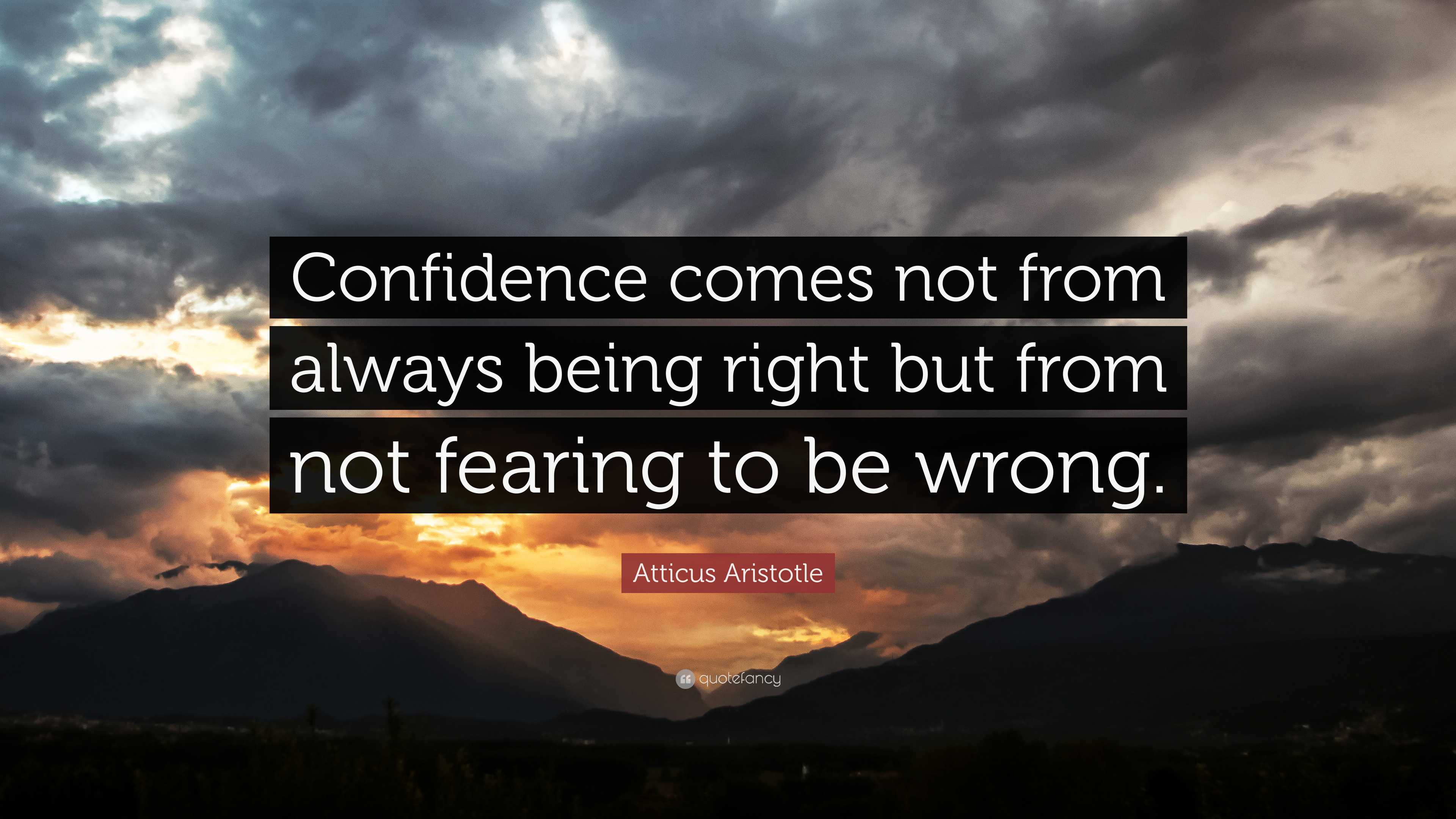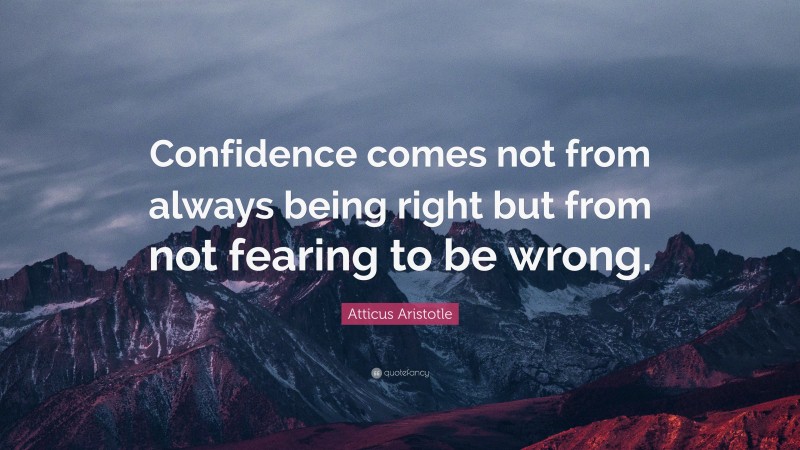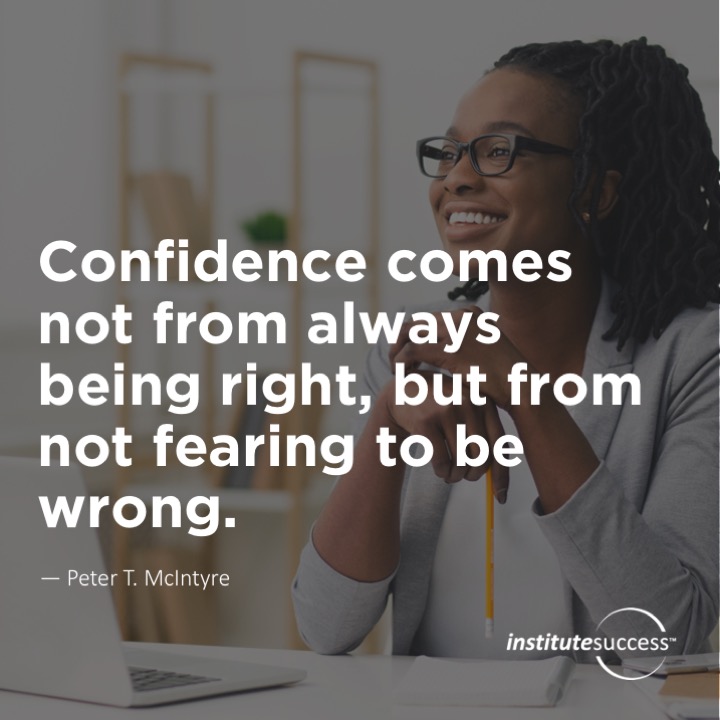Confidence Comes Not From Always Being Right
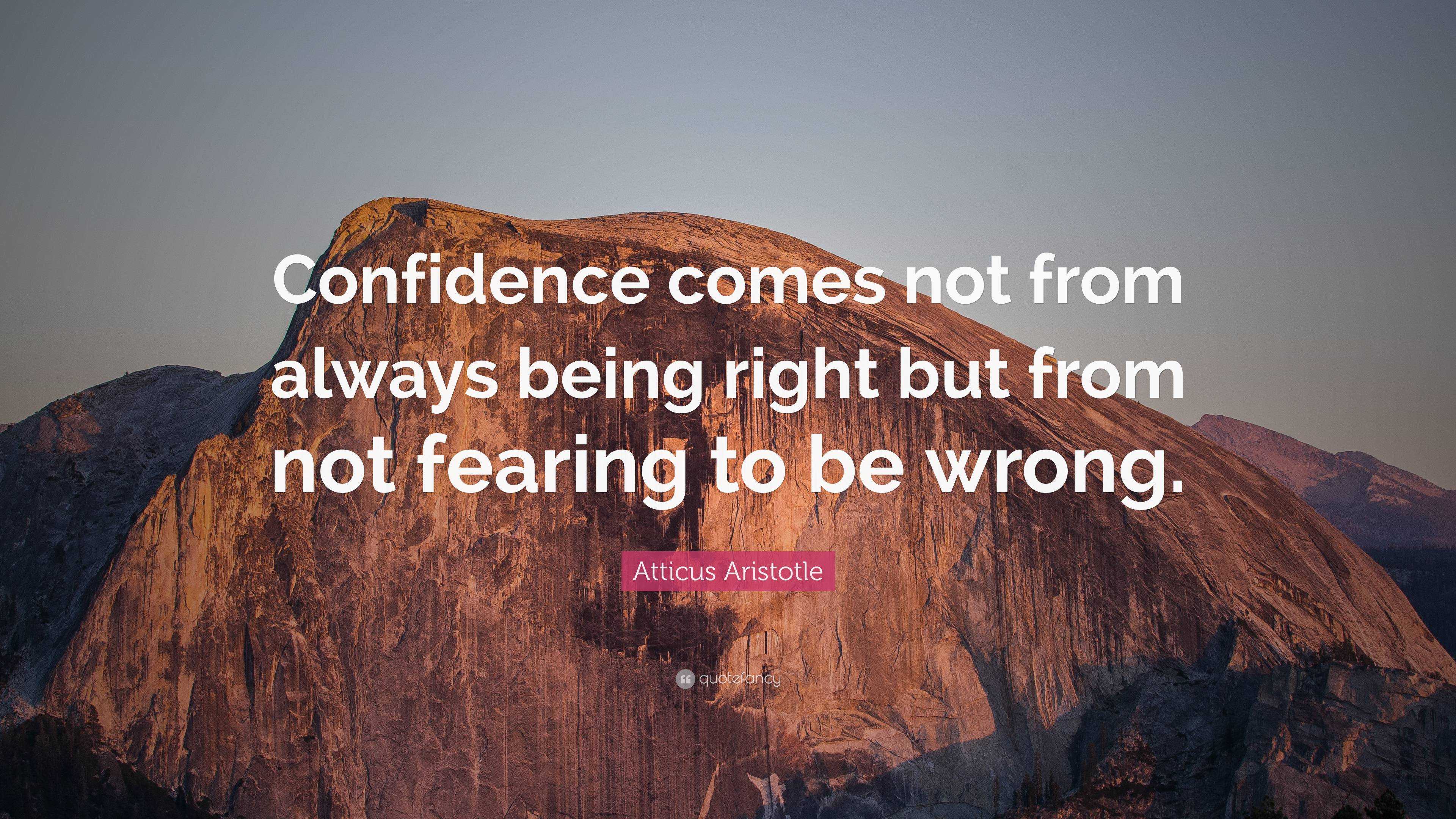
Imagine a tightrope walker, not flawlessly gliding across, but swaying, adjusting, occasionally stumbling yet always regaining balance. It’s not the absence of wavering that captivates us, but the unwavering resolve to keep moving forward, even when faced with inevitable missteps.
At its core, true confidence isn’t about perpetually being right; it's about possessing the courage to navigate uncertainty, learn from errors, and adapt with resilience. This paradigm shift challenges the conventional notion that confidence stems from flawless performance, suggesting instead that it blossoms from a willingness to embrace imperfection and growth.
The Myth of Infallibility
For years, society has subtly equated confidence with expertise, creating an illusion that those who appear perpetually correct are inherently more confident. However, this correlation can be misleading. A study published in the Journal of Personality and Social Psychology highlights that individuals who prioritize learning and growth often demonstrate greater long-term confidence, even if they make mistakes along the way.
Professor Eleanor Vance, a leading psychologist specializing in confidence-building strategies, explains, "The fear of being wrong can be paralyzing. It prevents us from taking risks, exploring new ideas, and ultimately, from growing." She emphasizes that reframing mistakes as learning opportunities is crucial for fostering genuine confidence.
Embracing the Learning Curve
The concept of intellectual humility, recognizing the limits of one's knowledge, plays a vital role in this process. Intellectual humility encourages individuals to remain open to new information and perspectives, even when they challenge existing beliefs.
A survey conducted by the Pew Research Center found that individuals who actively seek out diverse viewpoints are more likely to report feeling confident in their ability to navigate complex issues. This suggests that confidence is not about possessing all the answers, but about the capacity to engage with different viewpoints respectfully.
From Fixed Mindset to Growth Mindset
Psychologist Carol Dweck's work on mindset has been instrumental in understanding the difference between a fixed mindset (believing abilities are static) and a growth mindset (believing abilities can be developed through dedication and hard work).
Individuals with a growth mindset are more likely to view mistakes as opportunities for learning and improvement, leading to greater resilience and confidence in the face of challenges. This perspective shift is not about denying one's limitations, but about believing in the potential for growth.
Building Confidence Through Action
Practical strategies can cultivate this type of resilience-based confidence. One approach is to intentionally step outside of one's comfort zone, taking on challenges that require learning and adaptation.
Small, incremental steps are key. Starting with manageable challenges and gradually increasing the difficulty can build momentum and create a sense of accomplishment. Seeking feedback and actively reflecting on experiences, both successes and failures, further enhances the learning process.
"The only way to do great work is to love what you do," said Steve Jobs.
Loving the process of learning and growth, even when it involves making mistakes, can transform the experience from a source of anxiety to a source of motivation.
The Ripple Effect of Authentic Confidence
The benefits of genuine confidence extend beyond individual success. Individuals who are comfortable with their imperfections are often more compassionate and understanding towards others. This can create a more supportive and collaborative environment, fostering innovation and growth at both the individual and organizational levels.
By redefining confidence as the courage to learn and adapt, rather than the illusion of infallibility, we can unlock our potential and create a more inclusive and empowering world.
Ultimately, it is in the stumbles and recoveries that we find our true strength. The journey is not about avoiding the fall, but about learning to rise again, each time a little wiser and a little more confident.
